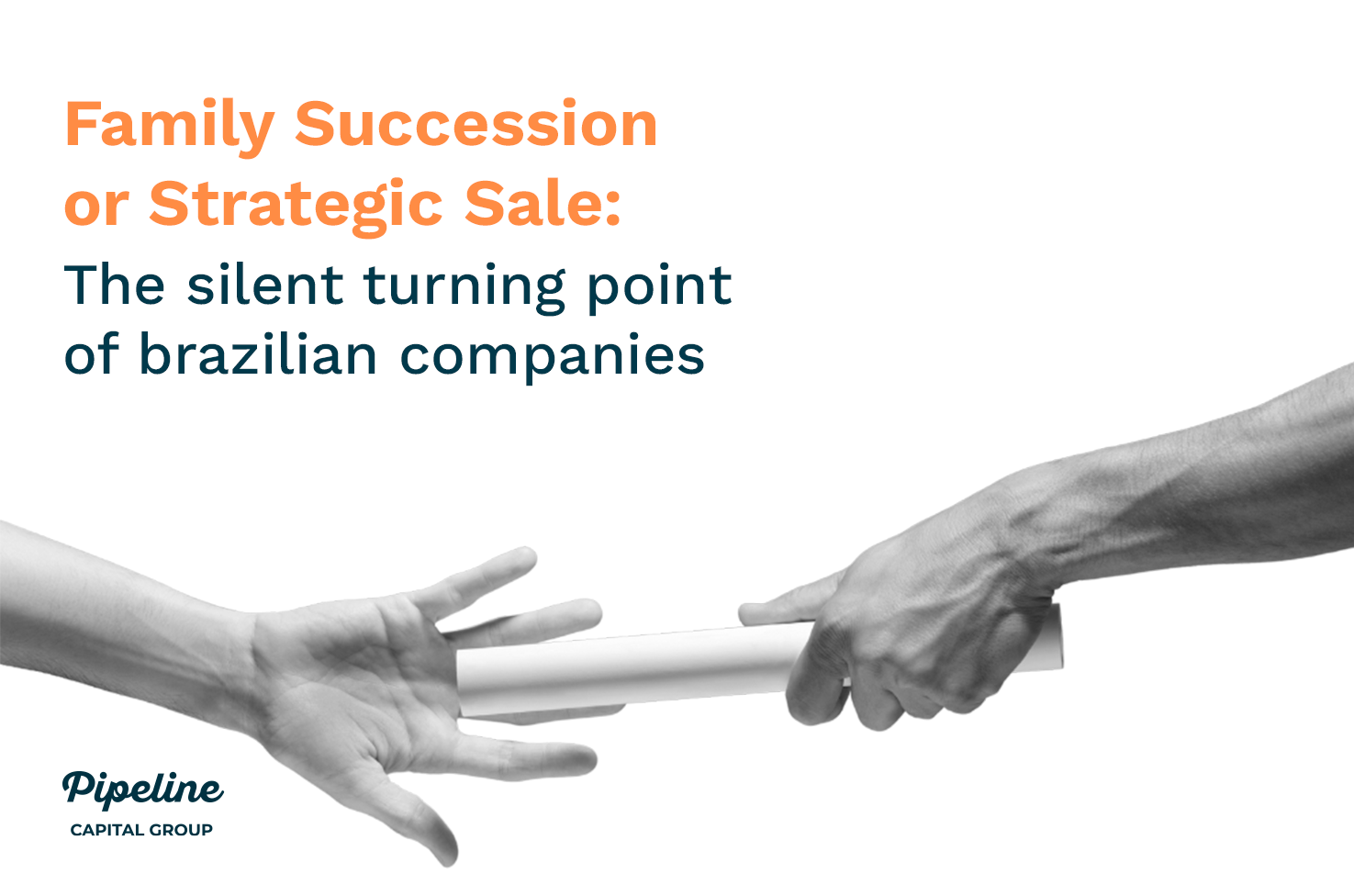There comes a moment in a company’s trajectory when continuity ceases to be a mere exercise in management and becomes a complex equation of assets, emotions, and strategy.
Family succession — traditionally seen as the natural extension of leadership — is now being challenged by a new corporate rationality: the strategic sale.
This dilemma, increasingly common among consolidated family-owned businesses, is not merely a choice between past and future. It is a turning point capable of redefining the value, structure, and legacy of the enterprise.
The Fallacy of Family Eternity
According to the World Bank and Brazil’s IBGE, only 30% of Brazilian family businesses reach the third generation, and less than half of those successfully complete the succession process. This statistic says less about business mortality and more about resistance to transformation.
The uncomfortable truth is that many founders project eternity onto models that require constant adaptation. Yet the market is unforgiving of inertia. When heirs lack vocation or preparation, the attempt to perpetuate family control often results in losses — of value, governance, and competitiveness.
Strategic Sale: Capitalizing on Legacy Before It Depreciates
Selling a company — whether partially or entirely — is often mistaken for surrender. In practice, it can represent the apex of entrepreneurial success: transforming a robust business into liquid wealth while ensuring governance, continuity, and accelerated growth.
Private equity funds, strategic investors, and international players are increasingly attentive to founders seeking to monetize decades of work while securing the brand’s longevity under new leadership.
The acquisition of Kopenhagen by Nestlé for roughly R$3 billion is a clear example: a transaction that not only capitalized the founding family’s investment but also gave the brand global scale and strength.
The Third Path: Succession with M&A as a Lever
The binary choice between succession or sale is being replaced by a hybrid, more sophisticated approach — sector consolidation with retained family control.
In this model, the company does not lose its identity; it strengthens it through mergers and acquisitions, gaining competitive muscle, technological depth, and broader market presence.
This route demands maturity — in governance, management, and long-term vision. It attracts investors who seek not just financial assets, but companies with history, culture, and potential for qualified expansion.
Valuation Is Not Just Mathematics — It’s a Narrative Well Told
A common mistake among family businesses is treating valuation as a purely technical number.
When unprepared for transition, heirs often negotiate under pressure, accepting offers that undervalue the company’s real worth.
Conversely, companies that professionalize governance and plan succession early gain bargaining power, attract multiple bidders, and position themselves as premium assets in the investor landscape.
Valuation is, above all, a narrative — one supported by consistent data, clear processes, and a credible vision of the future.
Succession Planning: Bureaucracy or Strategic Shield?
In Brazil, discussing succession still carries emotional weight. In many family councils, the topic is postponed indefinitely — until it becomes urgent.
And when it does, it’s usually expensive.
Governance frameworks, shareholder agreements, family holdings, and independent boards are not bureaucratic obstacles; they are value preservation tools.
They prevent disputes, prepare successors, align expectations, and create multiple pathways for the company’s evolution — whether through inheritance, sale, or transformation.
The Future Is Not Improvised — It’s Structured
Succession and M&A are not opposites. They are complementary gears in the same mechanism of perpetuity.
Companies that understand this in advance turn transitions into leaps, not crises.
In a Brazil marked by volatile interest rates and macroeconomic uncertainty, sectors like technology, healthcare, logistics, renewable energy, and specialized services remain attractive.
What separates the companies that lead from those that fade is simple: strategic preparation.
The Silent Decision That Defines the Future
Ultimately, the choice between succession and strategic sale is not just about who leads next — it’s about how the value built over a lifetime will be preserved, multiplied, and recognized.
Family businesses that treat the matter with professionalism not only maximize their financial outcomes but also ensure their name remains relevant in a market that rewards vision, courage, and preparation.
If your company is approaching this inflection point, don’t let improvisation decide for you.
Plan, structure, and turn succession into strategy.

